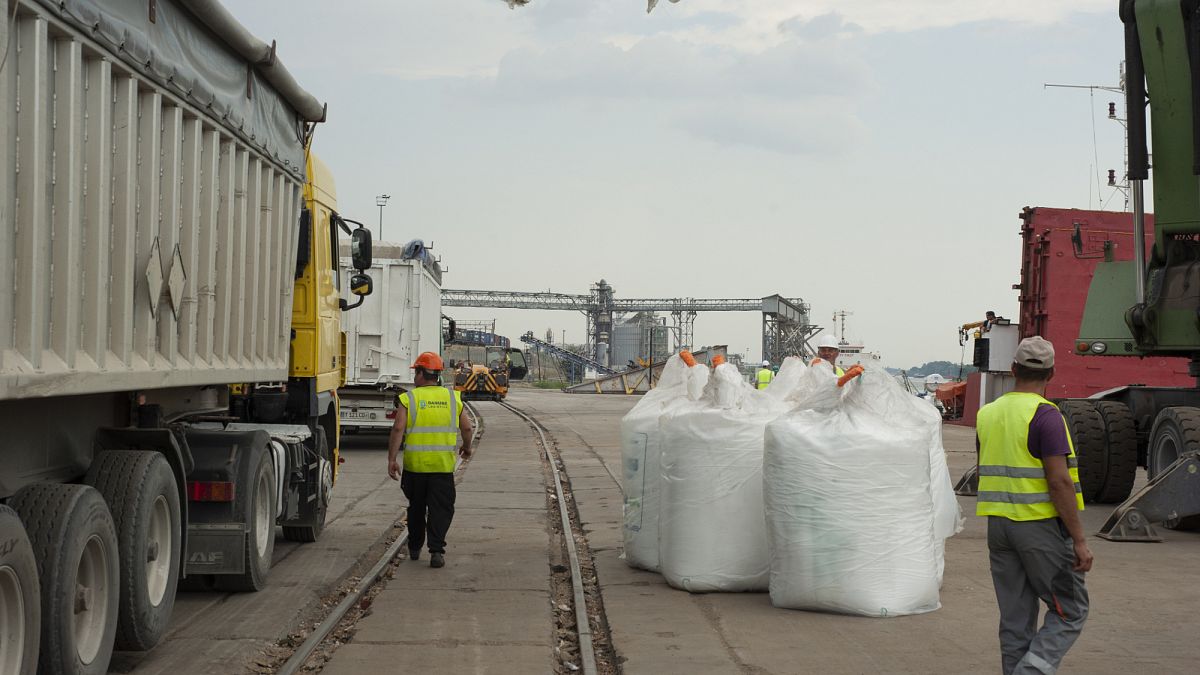In a vote held on Thursday, MEPs endorsed measures that aim to reduce the EU’s reliance on fertilisers and farm produce from Russia and its ally Belarus, while simultaneously cutting off financial support for Moscow’s war in Ukraine.
Set to take effect on 1 July, the new tariffs will target certain nitrogen-based fertilisers, increasing duties from 6.5% to levels approaching 100% over a three-year period, effectively halting most imports.
Russia currently supplies 25% of the EU’s nitrogen-based fertilisers, amounting to an estimated €1.3 billion annually. Additional duties will also be imposed on agri-food imports such as meat, dairy products, fruits, and vegetables from Russia and Belarus, representing about €380 million in annual trade.
The initiative gained momentum following sustained pressure from several member states and fertiliser industry leaders, who have advocated for swift action to bolster the EU’s strategic independence.
Ethical and strategic concerns
Beyond economic considerations, the tariff hikes are also intended to address ethical concerns. Russia imposes a 23.5% export tax on key mineral fertilisers, revenue from which helps fund its military activities in Ukraine.
“We must stop financing Russia’s war in Ukraine with our own financial resources. If the agriculture sector continues to pay for Russian fertilisers, that money directly supports the Russian budget,” said Latvian MEP Inese Vaidere, the Parliament’s rapporteur on the file
She warned of growing EU dependence on Russian fertilisers and the risks of sudden supply disruptions, which could jeopardise agricultural stability.
The European fertiliser industry welcomed the Parliament’s decision, describing it as a critical step toward reducing dependency and reinforcing Europe’s economic security.
“We call on all EU institutions to act swiftly to finalise and enforce these tariffs,” said Leo Alders, president of FertilizersEurope. “The sooner we implement these measures, the better we can protect our value chains, jobs, and food security.”
Farmers warn of rising costs
As the EU pushes forward with its strategy to reduce strategic dependencies and exert economic pressure on Russia, the challenge remains to balance geopolitical objectives with the immediate concerns of its farming community.
European farmers have expressed deep concern about the impact of the tariffs on agricultural competitiveness, input costs, and food security.
Cédric Benoist, from the French farmers’ union FNSEA, warned of “inflation in fertiliser prices within the European Union,” which would further strain farmers operating in a globally competitive market.
“We’re already feeling the consequences in terms of farm income,” he said. “Costs are rising, but we can’t pass that on to consumers.”
Benoist noted that the price of nitrogen solution, a type of liquid fertiliser, has surged from €160 per tonne five years ago to €300 per tonne today, after peaking at €600-700 during the COVID-19 pandemic.
He also cautioned that uncertainty ahead of the July deadline is distorting the market: “Fertiliser producers are withholding supply, waiting for the tariffs to kick in. That’s driving prices even higher.”
He also cautioned that uncertainty ahead of the July deadline is distorting the market: “Fertiliser producers are withholding supply, waiting for the tariffs to kick in. That’s driving prices even higher.”
Read the full article here


